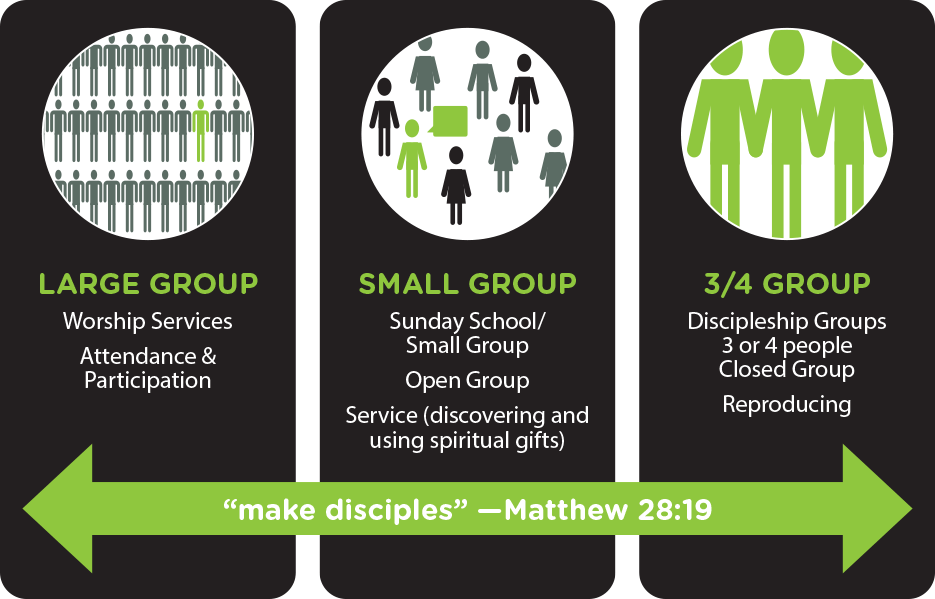What are you doing to disciple adults in your church? Often, the answer is, “We don’t have Sunday night Discipleship Training anymore, so we’re not really doing anything right now.” Pastors, staff and lay leaders in Louisiana Baptist churches are looking for solutions to discipling the adults in their churches.
For more information about this resource, contact Kevin Ulmer.
“The immune systems of most churches are weak. Because we have lowered our view of God and set aside His standards, we have allowed sinful attitudes and practices to prevail. We have treated God’s Word as if it were a collection of suggestions. This weak immune system allows sickness and disease to proceed unchecked. The culture of our churches will become much healthier when we simply begin to hold one another to God’s clear standards.”
Brad Waggoner, The Shape of Faith to Come: Spiritual Formation and the Future of Discipleship, B&H Publishing, 2008, p38.
Three Groups Everyone Needs to Be In

Extinguishers
What are the extinguishers that will keep these groups from being successful?
Program-driven: planned series of meetings where the goal is to take the largest number of people through a complete workbook or course; consideration for individual growth is secondary.
Large groups: the reasoning is that the larger the group, the greater and quicker the impact; accountability and personal/private matters are off limits; building trust is difficult.
Information-focused: as biblical information is dispensed, it is hoped learners will understand and make the necessary changes in their lives so that growth will take place.
Rigid schedule: discipleship can only take place at a specific time and place, not taking into account people’s family and work schedules.
Low accountability: when participants are not expected or under obligation to complete assignments and/or attend meetings, many drop out.
Non-reproducible: the class or group is an end in itself; participants do not intend to lead their own group and disciple others.
Reproducing disciples who will reproduce disciples is Christ’s plan for world evangelization.
—Avery Willis, MasterLife II, 249.
Essentials
What are the essentials to make the 3/4 group work?
Process-driven: from the beginning, the group has specific goals and actions to accomplish those goals (spiritual maturity).
Very small groups: personal concerns and individual needs can be addressed; holding participants accountable for assignments, group time sharing, and attending meetings is easier.
Relationship-focused: the application of biblical principles to the individuals’ lives will be the basis for transformation.
“Less than one out of every five born again adults has a biblical worldview, which is unchanged in the past 15 years; just half of all self-identified Christians firmly believe that the Bible is totally accurate in all of the principles (not the facts, just the principles) that it teaches; barely one-quarter of adults are confident that Satan exists; an overwhelming majority of self-identified Christians contend that spiritual maturity is achieved by following the rules in the Bible; nine out of ten senior pastors of Protestant churches asserted that spiritual immaturity is one of the most serious problems facing the Church.”
“Barna Studies the Research, Offers a Year-in-Review Perspective.” George Barna research, 2009, webpage; www.barna.org/faith-spirituality. Assessed 12 July 2012.





